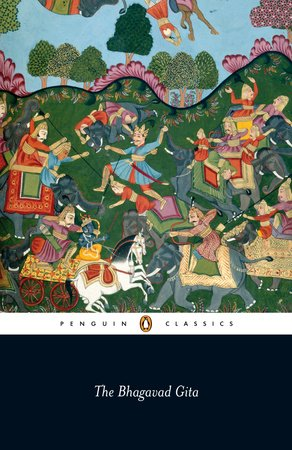Laurie Patton on The Higher Calling of Education

As part of the Virtues & Vocations webinar series, Conversations on Character and the Common Good, we are pleased to welcome Laurie Patton to discuss The Higher Calling of Education. Dr. Patton is the 17th president of Middlebury, and the first woman to lead the institution in its over 200 year history. Before coming to Middlebury, Patton was the Dean of Duke University’s Trinity College of Arts and Sciences as well as the Robert F. Durden Professor of Religion. Her scholarly interests are in the interpretation of early Indian ritual and narrative, comparative mythology, literary theory in the study of religion, and women and Hinduism in contemporary India. The live conversation will include time for audience questions.
Meet the Speaker: Laurie Patton

Laurie L. Patton is the 17th president of Middlebury, and the first woman to lead the institution in its 222-year history. Patton joined Middlebury in 2015 after serving as dean of Duke University’s Trinity College of Arts and Sciences and as the Robert F. Durden Professor of Religion.
In her inaugural address, Patton described a vision of a Middlebury that would actively engage with the most challenging issues facing society and challenged the community “to have more and better arguments, with greater respect, stronger resilience, and deeper wisdom.”
In 2022, under Patton’s leadership, Middlebury received a $25M grant to begin the Kathryn Wasserman Davis Collaborative in Conflict Transformation—the largest programmatic grant every received in the College’s history. The initiative views the study and development of conflict transformation skills as a liberal art, and supports wide-ranging initiatives in high-school, undergraduate, graduate, global, and experiential learning, where students learn and practice different approaches to conflict management and resolution.
In 2020, her team launched the new residential learning program, Compass. Now in its pilot phase, Compass takes the core elements of Middlebury’s entrepreneurship programs, including a focus on mentorship, creativity, financial literacy, and networking, and makes them accessible to all students. Under her leadership in the pandemic year, Middlebury had one of the lowest rates of COVID-positive cases in the nation.
In 2019, she announced Energy2028, Middlebury’s bold plan to address the threat of climate change after its achievement of carbon neutrality in 2016. Energy2028 has put the institution on the path toward a complete shift to renewable energy.
In 2016 Patton launched Envisioning Middlebury, the planning effort that created a strategic framework to guide the institution over the coming decade. The plan was adopted by the trustees in October 2017.
Patton is an authority on South Asian history, culture, and religion, and religion in the public square. She is the author or editor of 10 books and more than 60 articles and has translated the classical Sanskrit text The Bhagavad Gita. She is also the author of three books of poems, most recently House Crossing in 2018 from Station Hill Press.
From 1996 to 2011, Patton served on the faculty and administration at Emory University, where she was the Charles Howard Candler Professor of Religions and the inaugural director of Emory’s Center for Faculty Development and Excellence in the Office of the Provost. Patton began her career at Bard College, where she was assistant professor of Asian religions from 1991 to 1996.
Patton earned her BA from Harvard University in 1983 and her PhD from the University of Chicago in 1991. She has served as president of the American Society for the Study of Religion in 2011, and the American Academy of Religion, made up of over 9,000 members, in 2019. She was elected to the American Academy of Arts and Sciences in 2018 in two categories: philosophy and religion, and educational leadership.
View the Live Event
Presented by Center for Social Concerns
Monday, September 18, 2023 12:00 pm
As part of the Virtues & Vocations webinar series, Conversations on Character and the Common Good, we are pleased to welcome Laurie Patton to discuss The Higher Calling of Education. Dr. Patton is the 17th president of Middlebury, and the first woman to lead the institution in its over 200 year history. Before coming to Middlebury, Patton was the Dean of Duke University’s Trinity College of Arts and Sciences as well as the Robert F. Durden Professor of Religion. Her scholarly interests are in the interpretation of early Indian ritual and narrative, comparative mythology, literary theory in the study of religion, and women and Hinduism in contemporary India.
Subscribe to the ThinkND podcast on Apple, Spotify, or Google.
View EventBook: The Bhagavad Gita

Penguin Classics has published Laurie Patton’s translation of, and commentary on, the Bhagavad Gita.
From publisher: The Bhagavad Gita is an early epic poem that recounts the conversation between Arjuna the warrior and his charioteer Krishna, the manifestation of God. In the moments before a great battle, the dialogue sets out the important lessons Arjuna must learn to change the outcome of the war he is to fight, and culminates in Krishna revealing to the warrior his true cosmic form, counseling him to search for the universal perfection of life. Ranging from instructions on yoga postures to dense moral discussion, the Gita is one of the most important Hindu texts, as well as serving as a practical guide to living well.
Podcast: Can poets and storytellers bridge our divides?
Laurie Patton collects stories. A scholar of Indian religions and the president of Middlebury College in Middlebury, Vermont, Patton looks for narratives that show people building lasting relationships with others. “I think about what stories change people’s minds,” Patton says, particularly stories about shelter, human movement and home. Listen to this podcast episode from Interfaith America here.
See discussion questions from Interfaith America below.
Book: Jewels of authority: women and textual tradition in Hindu India

From the Publisher: The essays in Jewels of Authority address the problem of Hindu women’s relationship to authority, both within and without the textual traditions of Sanskrit, Tamil, Hindi, and English. The authors adopt a method of close textual and ethnographic reading, which results in some surprisingly new and subtle ways of interpreting older, more “classical” discourses, such as Veda and Mimamsa, as well as newer discourses, such as the RSS use of the Devimahatmya. Edited by Laurie Patton. (Oxford University Press, 2002)
